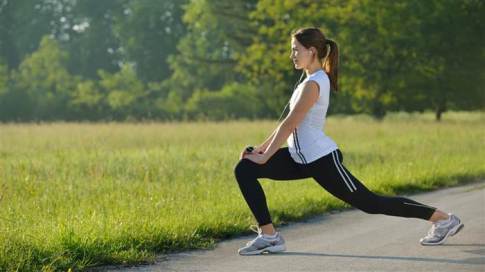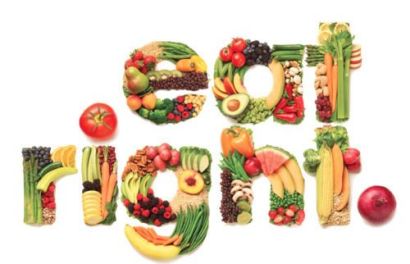Two fuel sources—carbs & fats—are used to generate energy for muscle contraction during exercise. For endurance exercise performed at a moderate intensity, you obtain 50–60% of energy needed from glycogen (which is stored energy from carbs) and the rest from fats.
When you deplete glycogen stores by fasting overnight, or going several hours without refueling, fatty acids break down in the mitochondria to be used as a secondary energy source. As workout intensity increases, your reliance on carbohydrates increases as well.
In one study that tested the fat burning effect cardio on an empty stomach, six healthy men cycled for 60 minutes at a low to moderate intensity:1
Group 1– Fasted overnight before the bike ride.
Group 2– Performed the bike ride after ingesting 0.8g/kg of glucose or fructose to replenish glycogen levels 1 hour prior to the workout.
Results: After 20-30 minutes of exercise, the rate of fat burn was higher in the fasted group than in the glucose or fructose group. This trend continued throughout 50-60 minutes of exercise. There was also a higher quantity of FFAs (Free flowing fatty acids) available in the blood in a fasted state throughout the exercise.
The Take Away: This particular study suggests that more fat was burned by the group that performed MODERATE activity on an empty stomach… DURING THE EXERCISE ITSELF.
But Empty Stomach Cardio Does Not Burn More TOTAL Fat
Not so fast. Notice how “moderate” exercise is emphasized in the example above? Research shows that people who burn fat during their workouts actually burn less fat the rest of the day. Overtime, fat burning is not an immediate process, rather, it occurs over the course of, not a few hours, but a few days.
As you burn more carbohydrates during your workout, the body will burn more fat post exercise. This “afterburn effect” where your metabolism is elevated for several hours or days following your workout is critical when debating the benefits of fasted cardio.
While you may burn more fat during your workout on an empty stomach, your overall workout intensity may decline.2 Your body’s ability to burn fat post-exercise is compromised. Consider the whole 24 hour period and cardio on an empty stomach is less effective.3
Evidence supporting fueled exercise
Researchers from Italy investigated the contrasting reports on whether training in a fasting condition enhances weight loss. There were 8 healthy young men who performed early morning slow cardio under 2 conditions: Adaptations to skeletal muscle with endurance exercise training in the acutely fed versus overnight-fasted state.
1. Empty stomach
2. After eating
Eating increased both oxygen consumption (VO2) and respiratory exchange ratio (RER) significantly, 12 hours after the cardio, VO2 was still higher for the group who had eaten, although RER was significantly lower in the FED test, indicating greater fat burn.
The group that ate before the cardio session continued to burn significantly more calories up to 24 hours after the exercise bout. The authors concluded that “when moderate endurance exercise is done to lose body fat, fasting before exercise does not enhance lipid utilization (fat loss); rather, physical activity after a light meal is advisable.”
To sum this up, both exercise routines have their advantages. On an empty stomach you can burn more fat during the workout, but if you eat a light meal before the workout, you will continue to burn fat for more hours after the workout session. So eating before your workout will help you lose more fat.
Eating a snack or small meal containing carbs and protein before a morning workout may help provide energy. You may want to avoid some foods, like fiber-rich ones, that may take longer to digest. I personally like protein shakes.
Follow me on X, the former Twitter, @ray0369 to get a link to my latest posts.
If you want to lose your body fat look for my e-books at the websites listed below. You’ll get information on Healthy eating, exercise, and diet. Instead of spending hours on the internet reading dozens of posts, you can save time by picking up one of my e-books. There are two e-books. “How Bad Do You Want To Lose Weight?” is available at all the online bookstores selling for $3.99. Go to any of the websites below and search the title to find my e-book. This book gives you all you need to lose weight without spending money on gym memberships, diet plans, or meal plans.
Look for my first book at Amazon.com, bn.com, iBooks, Kobo.com, Scribd.com, or Gardner Books in the U.K.
My new e-book is available on Smashwords.com and other online bookstores. Just type “getting to a Healthy Weight” in the search box at the top of the home page.
Look for my podcast by searching “How Bad Do You Want To Lose Weight” on the podcast app that you use. You’ll see a piece of my book cover.


:max_bytes(150000):strip_icc():format(webp)/grocery-basket_Dan-Dalton-56a2c9de3df78cf77279f4da.jpg)








